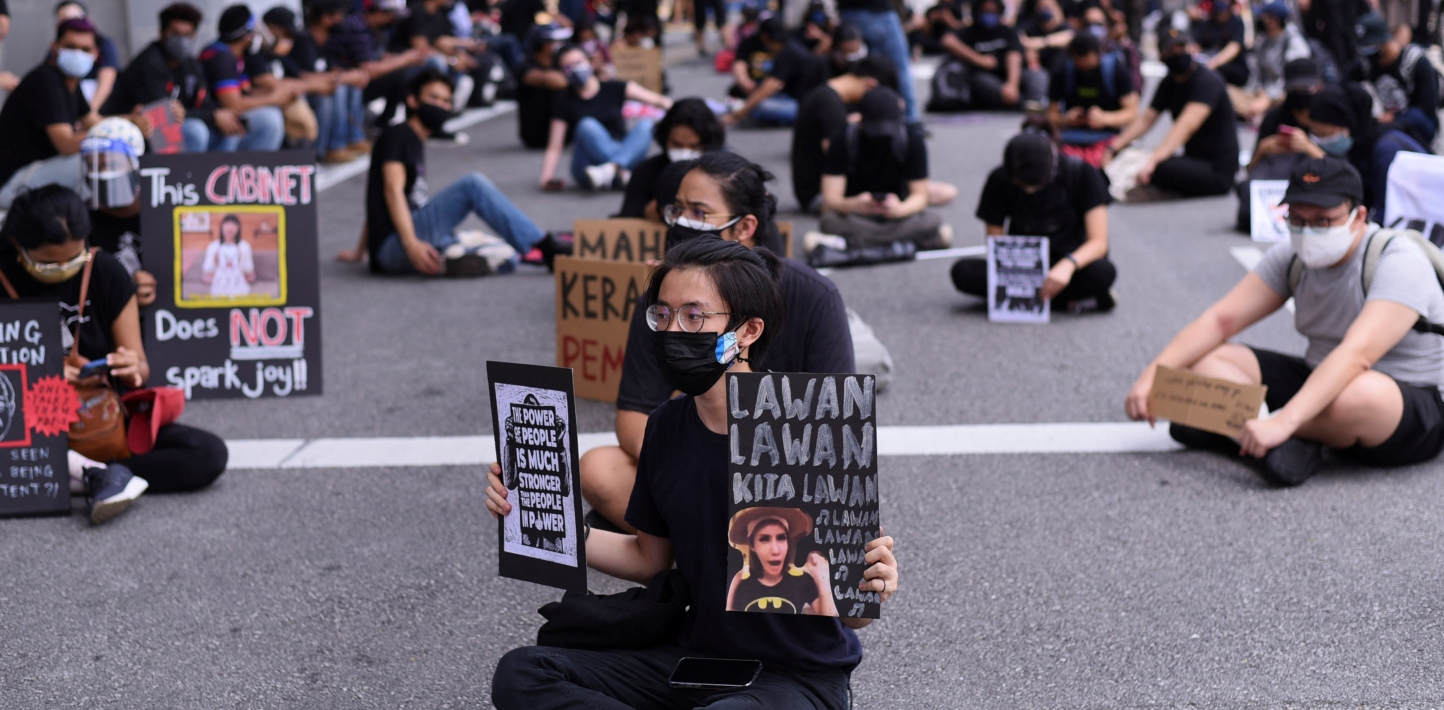PRESS RELEASE
29 MARCH 2022
PURSUIT OF POWER AND PROFIT LED TO HUMAN RIGHTS VIOLATIONS GLOBALLY AND IN MALAYSIA
Political leaders and corporate titans across the world put profit and power ahead of people, betraying promises of a fair recovery from the pandemic, while in Malaysia human rights defenders, journalists and opposition leaders faced investigations in 2021 as the government continued to use COVID-19 measures to restrict freedom of expression and assembly, Amnesty International said in its annual report published today.
Amnesty International Report 2021/22: The State of the World’s Human Rights covers 154 countries and delivers a comprehensive analysis of human rights trends globally in 2021. The report finds that wealthy states alongside corporate titans have driven deeper global inequality through noxious corporate greed and brutal national selfishness as well as neglect of health and public infrastructure by governments around the world.
“2021 should have been a year of healing and recuperation. Instead, it became an incubator for deeper inequality and greater instability, a legacy caustic for years to come,” said Agnès Callamard, Secretary General of Amnesty International.
In Malaysia, political leaders jostling for power and frustration over the government’s handling of the pandemic caused public protest and political instability. In response, the government curtailed freedom of expression and assembly using pandemic control measures as well as existing laws such as the Sedition Act and the Communications and Multimedia Act (CMA), both of which Amnesty International has consistently campaigned to be repealed.
“When we needed independent voices the most, the government instead used COVID-19 measures and other repressive laws to silence critical speech, said Katrina Jorene Maliamauv, executive director of Amnesty International Malaysia “The pandemic was used as an excuse to silence criticism, debate and independent journalism. Instead or respecting the right to protest, political leaders put the pursuit of power ahead of the people.”
Amnesty International’s review of Malaysia highlights various violations of freedom of expression and assembly in the country, particularly in the first half of 2021. In February, news outlet Malaysiakini was fined RM500,000 for contempt of court for comments posted by its readers criticizing a court judgment, while in June, refugee rights activist Heidy Quah was charged under the CMA for highlighting poor conditions at an immigration detention centre.
The government also cracked down on the Lawan protest movement that criticised its management of the pandemic. Student activist Sarah Irdina Arif was detained under the Sedition Act while dozens of people were investigated in relation to a July protest in the capital. Organisers also faced harassment by police at their homes. A related vigil in August was violently broken up by police under the guise of enforcing COVID-19 control measures.
Refugees and migrants, on the other hand, faced continued immigration raids, arrests and detentions by the authorities. Despite evidence of serious human rights violations following the February coup in Myanmar, the government deported 1,086 migrants and asylum seekers back to the country in defiance of a court order. Custodial deaths continued to occur with alarming frequency and no accountability. At least 19 people died in police custody with no comprehensive investigations carried out.
“Deaths in custody remain a perennial problem with no serious effort to address them,” said Katrina. “Instead of establishing an effective and independent commission with sufficient investigative and disciplinary powers, the government continued to push for the weak and ineffective Independent Police Conduct Commission (IPCC) bill in Parliament that would further dilute already insufficient mechanisms.”
The persecution of LGBTI people has also persisted. In June, the government revealed that to date 1,733 individuals have been sent to “rehabilitation” camps run by the Islamic Development Department (JAKIM), while the government’s “anti-LGBT task force” warned of action against those “promoting the LGBTI lifestyle”. Meanwhile, indigenous communities continued to face threats from encroachment into their land, with one community in Kelantan protesting against a dam that community leaders say was approved without free, prior and informed consent.
Though a 2018 moratorium on executions remained in place, efforts to abolish the death penalty have largely stalled, much like other human rights reforms. In December the government said it will be reviewing in early 2022 the use of the mandatory death penalty but no further announcements have been made since.
“A lack of effective political leadership and stability has led to continued human rights violations and a complete standstill on much needed changes,” said Katrina. “As politicians focused on gaining power, the people have suffered tremendously in 2021, from the fallout of the pandemic and also a failure to institute urgent human rights reforms. As we enter the third year of the pandemic, COVID-19 can no longer be an excuse for the government to suppress basic freedoms and stall on legislative amendments that will help secure human rights for all.”
The full report can be found here: https://www.amnesty.org/en/latest/research/2022/03/annual-report-202122/
For more information, please contact Brian Yap at [email protected]
(Image: AFP via Getty Images)


